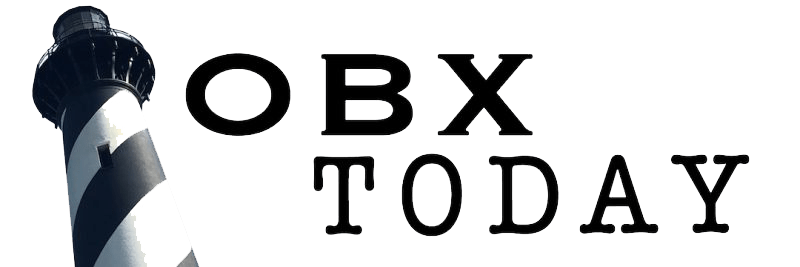
The coronavirus pandemic has caused many large and small businesses to adjust their approaches towards society’s current needs. On the national scene, automobile manufacturers have made ventilators. Closer to home, Outer Banks Distilling has bottled hand sanitizer instead of Kill Devil Rum and Wanchese’s Croswait Marine Services and Croswait Composites have manufactured intubation boxes.
Some COVID-19 patients will need ventilator treatment, and healthcare providers must insert a intubation tube into a patient’s airway for a ventilator to be used. That’s where the intubation box comes in. Coronavirus can be spread through water droplets. An intubation box is a viable barrier and ally in the reduction of healthcare workers risk of disease contraction.
It’s made of optically clear acrylic sheets (plexiglass) and related adhesives which glue them together. Polycarbonates (lexan) can also be used. A Croswait intubation box will measure 20 inches deep, by 20 inches tall, by 26 inches wide. The two arm holes allow medical professionals direct access to the patient. The intubation tube gets inside the box through a hole in the box’s side.
Well we are at 2/3rds capacity at the Wanchese CNC shop.
Posted by Bear CNC on Tuesday, April 9, 2019
The Croswait name has been a linchpin in the Outer Banks fishing and charter boat scene as a family business run by Bobby and his sons Jordy and Aaron. The family is a proud part of Outer Banks boatyard lore. Bobby’s stepfather is the late Buddy Cannady. Captain BC’s creations still fish the Outer Banks waters.
A family connection is how the Croswaits became involved in intubation box production.
“My wife’s an RN at the Outer Banks Hospital and she said we needed these and can I build it,” Aaron Croswait said. “I said absolutely, and we had a prototype ready the next day. We made three different versions, three different trials, and we found one they liked.”
A CNC machine is a vital asset in intubation box production. The letters CNC stand for Computer Numeric Control. A computer file is designed and programmed to direct the machine where and how to move and carve 2D and 3D items. Croswait’s CNC go to person is Mike Campbell, who has worked with Croswait for five years.

“There are a lot of different CNC’s but ours are large, automated routing tools used to cut away bits of plastic, wood, or composites to leave a finished part quickly and accurately,” Campbell said. “The biggest advantage to automation is accurate repeatability, once a file has been designed and programmed it can be used to make those exact parts as often as needed whenever they’re needed in the future.”
The machine can benefit both boat and intubation box projects.
“In boat building, it means we can process a lot of the tedious and time consuming tasks in sheet goods cleanly, giving the hands on craftsmen a good foundation to finish their work better,” Campbell said. “For the Med Service boxes it allows us to produce batches of parts ready to assemble in less time over and over.”
The intubation box project has added to the company’s workload because the boat-related projects have never stopped. However, it’s also drawn the Croswait crew closer together. “The way the process has been working is our guys have been cutting the pieces during the day, and then Me, Jordy, and Dad have been assembling them at night, Aaron said. “We’ve built 16 of them now, they’re in Chowan, Bertie, the Outer Banks Hospital, Ahoskie, and Greenville.”
Most of the intubation boxes have been sold, but three have been donated. The Med Flight program in Greenville received two and one was given to the Outer Banks Hospital.
Vidant, the owner of Outer Banks Hospital has appreciated support from the community, said Vidant spokesman Brian Wudkwych.
“We have been encouraged by the expressions of support from so many who want to show appreciation to our front line health care workers who are working tirelessly and sacrificing time away from their families to care for those we love.”
